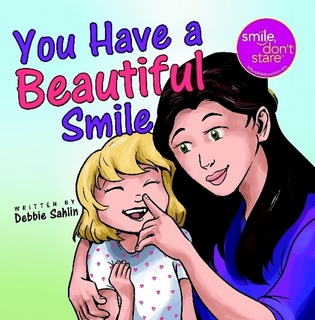Inclusion starts with the simplest action: a smile

by Debbie Sahlin
We’ve all experienced that moment when our children first see a person living with a disability and ask, “What’s wrong?” It’s difficult to know how to respond, isn’t it?
Do you remember when you were a child and saw someone with a disability for the first time? Do you remember what your mom or dad told you to do? Probably the same thing my parents said, “Don’t look, don’t stare.” Ironically, when I saw something scary on television, my parents told me the same thing, “Cover your eyes, don’t look.”
My son, Ryan, suffered a traumatic brain injury when he was about a year old. As a result of his injury, Ryan is permanently and severely disabled.
He’s not scary. He’s just different.
Young children are naturally curious – and often very vocal. Natural tendency is to hush children in an effort to be respectful and polite. But teachable moments are being missed everyday, for fear of offending.
Did you know that the questions children ask (e.g., “What’s wrong with him?” “Why does she look weird?”) don’t offend? We already know we are different and most often fully accepting of it. Not answering these questions is what hurts – it isolates and excludes.
That’s why I started the “Smile, Don’t Stare” campaign. While it’s called “Smile, Don’t Stare,” this campaign is about so much more. It is intended to help people rethink how their actions affect children living with disabilities and foster an inclusive, friendly environment.
As part of the campaign, I have written a children’s book. A fiction book for parents and children, “You Have a Beautiful Smile,” teaches a more inclusive way to address children’s questions and leads us all to a beautiful truth – we are all more alike than different.
What if, together, we could shift the tide from isolation to inclusion? Change starts with the simplest action: a smile.
I asked some of the children and families I serve through my foundation, Lollipop Kids Foundation, how they wish to be treated in public. Take a look at what they said.


